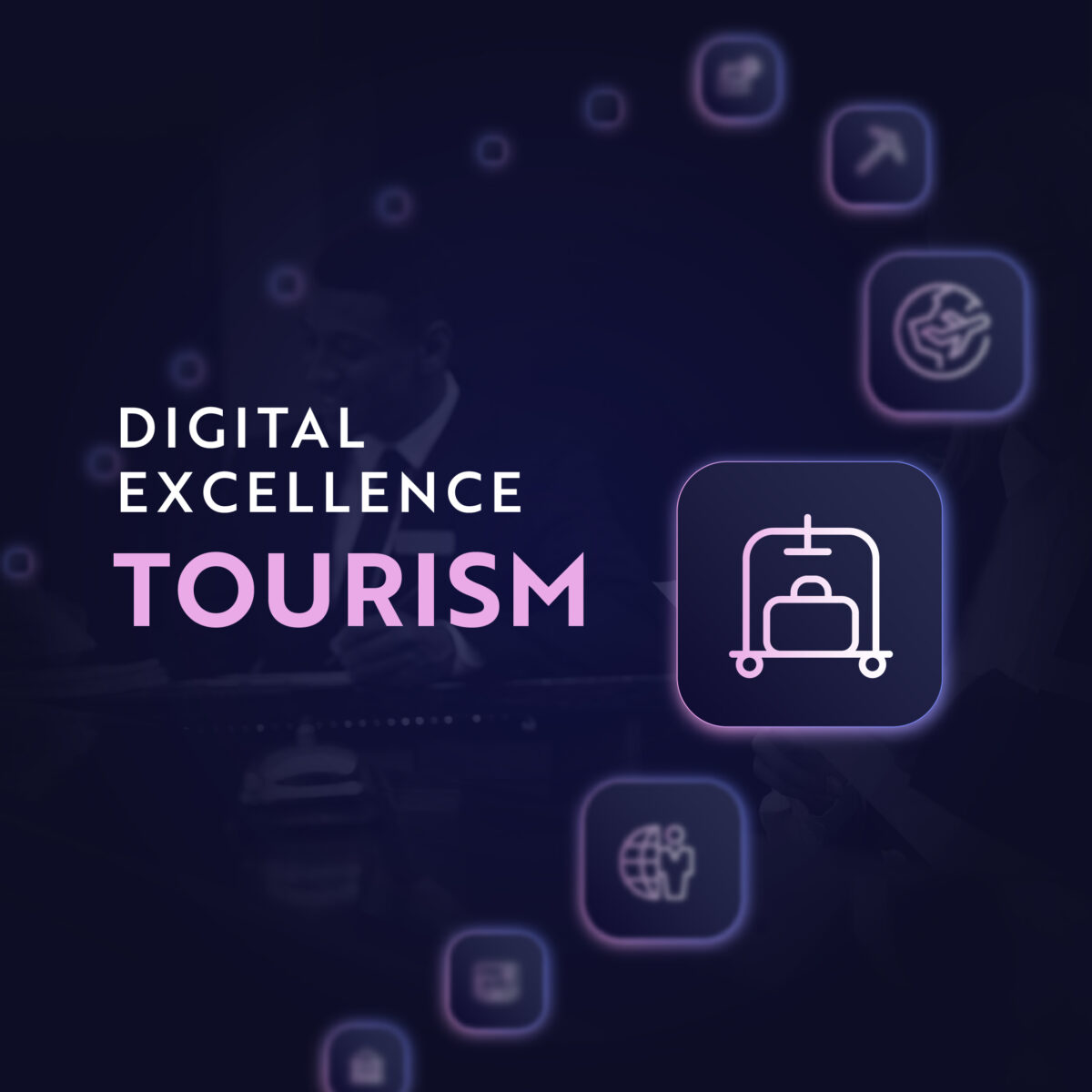
Impact Assessment: Key Technologies Transforming Excellence in Tourism and Hospitality
- Artificial Intelligence (AI) and Machine Learning:
- Personalized Guest Experiences: AI analyzes guest preferences and behaviors to offer personalized recommendations, tailor-made experiences, and targeted marketing, enhancing guest satisfaction and loyalty.
- Chatbots and Virtual Assistants: AI-powered chatbots provide 24/7 customer support, handling inquiries, booking requests, and service issues, improving efficiency and guest experiences.
- Internet of Things (IoT):
- Smart Rooms and Facilities: IoT devices enable guests to control room settings, such as lighting, temperature, and entertainment, through mobile apps or voice commands, enhancing convenience and comfort.
- Operational Efficiency: IoT sensors monitor energy consumption, equipment performance, and occupancy levels, optimizing resource use and reducing costs.
- Augmented Reality (AR) and Virtual Reality (VR):
- Immersive Experiences: AR and VR offer virtual tours, interactive experiences, and destination previews, enhancing guest engagement and assisting with travel planning.
- Training and Simulation: VR provides immersive training for staff, improving service delivery and operational efficiency.
- Big Data and Analytics:
- Customer Insights: Data analytics provide insights into guest behavior, preferences, and trends, enabling more effective marketing, pricing strategies, and service enhancements.
- Revenue Management: Analytics tools optimize pricing and inventory management, maximizing revenue and occupancy rates.
- Mobile and Digital Platforms:
- Seamless Booking and Check-In: Mobile apps and digital platforms enable guests to book, check in, and access services conveniently, enhancing the guest journey and reducing wait times.
- Contactless Services: Digital solutions provide contactless payment, room access, and service requests, improving safety and convenience in the post-pandemic environment.
Benefits and Challenges of Excellence in Tourism and Hospitality
- Benefits:
- Enhanced Guest Experience: Digital technologies enable personalized, seamless, and memorable experiences, increasing guest satisfaction and loyalty.
- Operational Efficiency: Automation and data analytics streamline operations, reduce costs, and improve resource allocation.
- Increased Revenue: Advanced technologies optimize pricing, marketing, and inventory management, driving revenue growth and profitability.
- Challenges:
- Technological Integration: Integrating new digital technologies with existing systems requires careful planning and investment, particularly for legacy hotels and resorts.
- Cybersecurity Risks: The increased reliance on digital technologies exposes businesses to cyber threats, necessitating robust security measures.
- Privacy Concerns: The collection and use of guest data raise privacy concerns, requiring compliance with data protection regulations and transparent communication.
Excellence in Tourism: Strong Use Cases
- AI-Driven Personalization:
- Hotels like Marriott use AI to analyze guest preferences and offer personalized experiences, enhancing guest satisfaction and loyalty.
- IoT-Enabled Smart Rooms:
- Resorts such as Hilton have implemented IoT technology in rooms, allowing guests to control settings and access services through mobile apps, enhancing convenience and comfort.
- AR and VR for Destination Marketing:
- Travel companies like Expedia use AR and VR to offer virtual tours and interactive experiences, engaging travelers and assisting with trip planning.
Compelling Case Studies
AccorHotels: AI for Personalized Guest Experiences
AccorHotels leverages AI to provide personalized guest experiences across its properties. By analyzing guest data, AccorHotels tailors recommendations, offers personalized services, and enhances the guest journey. This approach demonstrates the potential of AI to transform hospitality and build guest loyalty.
Wynn Resorts: IoT-Enabled Smart Rooms
Wynn Resorts has implemented IoT technology to create smart rooms that allow guests to control various settings through voice commands and mobile apps. By enhancing convenience and comfort, Wynn Resorts delivers a superior guest experience, setting a new standard in luxury hospitality.
Main Recommendations
- Invest in AI and IoT Technologies:
- Prioritize investment in AI and IoT technologies to enhance personalization, operational efficiency, and guest satisfaction. Embrace data-driven decision-making to improve service quality and revenue management.
- Enhance Guest-Centric Services:
- Leverage mobile and digital platforms to offer seamless, convenient, and personalized services. Focus on improving the guest journey and building loyalty through innovative digital solutions.
- Utilize the Digital Maturity Index (DMI):
- Conduct regular DMI assessments to evaluate digital capabilities, identify gaps, and develop strategic roadmaps for transformation. Use these assessments to guide decision-making and prioritize initiatives.
- Strengthen Cybersecurity Measures:
- Implement robust cybersecurity strategies to protect digital assets and sensitive guest information. Ensure compliance with industry standards and regulations to safeguard against cyber threats.
- Address Privacy Concerns:
- Develop transparent data protection policies and communicate clearly with guests about the use of their data. Ensure compliance with privacy regulations to build trust and confidence.
Conclusions
The tourism and hospitality industry is undergoing a digital transformation that presents both challenges and opportunities. By embracing digital technologies and focusing on personalization and guest experience, businesses can unlock significant business value and maintain a competitive edge. Executives must prioritize digital transformation initiatives and leverage tools like the Digital Maturity Index to guide their journey toward digital tourism excellence. In doing so, they can drive sustainable growth and profitability while delivering exceptional service in a rapidly evolving travel landscape.


















